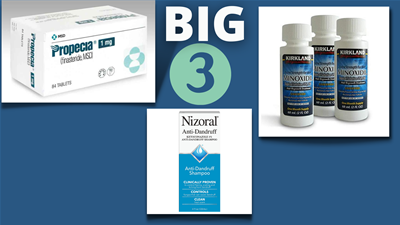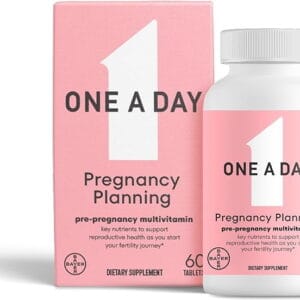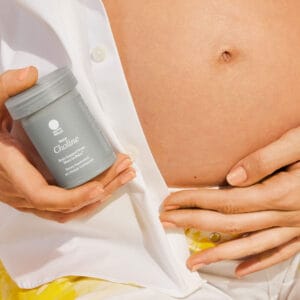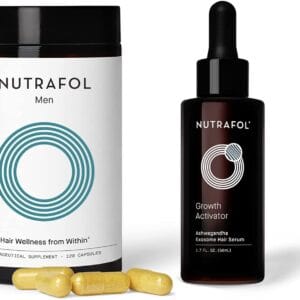Thinning hair is a common concern among women, affecting their self-esteem and overall confidence. While various factors contribute to hair loss, nutritional deficiencies play a significant role. Vitamins and minerals are essential for maintaining healthy hair growth, and their deficiency can lead to thinning and shedding. Certain vitamins have been identified as crucial for promoting hair health, and supplementing with these nutrients can help address thinning hair. Understanding the role of vitamins in hair growth can help women identify effective solutions to restore their hair’s natural thickness and vitality. Proper nutrition is key.

Essential Vitamins and Nutrients for Promoting Healthy Hair Growth in Women
Thinning hair is a common concern among women, and while there are various factors that contribute to hair loss, nutritional deficiencies play a significant role. A well-balanced diet rich in essential vitamins and nutrients is crucial for maintaining healthy hair growth. Certain vitamins and minerals help promote hair growth, strengthen hair follicles, and improve the overall health of the scalp.
The Role of Biotin in Hair Growth
Biotin is a B-complex vitamin that plays a vital role in hair growth. It helps to strengthen hair follicles, improve hair texture, and reduce the risk of hair loss. Biotin deficiency is a common cause of hair thinning, and supplementing with biotin can help to promote hair growth. Foods rich in biotin include eggs, nuts, and leafy greens.
| Food Sources | Biotin Content (mcg) |
|---|---|
| Eggs | 10-15 |
| Nuts (almonds, walnuts) | 5-10 |
| Leafy Greens (spinach, kale) | 2-5 |
Vitamin C: A Powerful Antioxidant for Hair Health
Vitamin C is an essential nutrient that helps to promote hair growth by protecting the hair follicles from damage caused by free radicals. It also plays a crucial role in the production of collagen, a protein that gives structure to hair. Vitamin C deficiency can lead to hair loss and brittle hair. Foods rich in vitamin C include citrus fruits, berries, and leafy greens.
| Food Sources | Vitamin C Content (mg) |
|---|---|
| Citrus Fruits (oranges, lemons) | 50-100 |
| Berries (strawberries, blueberries) | 50-150 |
| Leafy Greens (spinach, kale) | 20-50 |
The Importance of Vitamin D for Hair Growth
Vitamin D is a fat-soluble vitamin that plays a crucial role in hair growth. It helps to regulate the growth cycle of hair follicles and maintain the health of the scalp. Vitamin D deficiency has been linked to hair loss and alopecia. Foods rich in vitamin D include fatty fish, egg yolks, and fortified dairy products.
| Food Sources | Vitamin D Content (mcg) |
|---|---|
| Fatty Fish (salmon, mackerel) | 10-20 |
| Egg Yolks | 1-2 |
| Fortified Dairy Products | 2-5 |
Iron Deficiency and Hair Loss
Iron is an essential mineral that plays a crucial role in hair growth. Iron deficiency is a common cause of hair loss, particularly in women. Iron helps to carry oxygen to the hair follicles, promoting healthy hair growth. Foods rich in iron include red meat, poultry, and fortified cereals.
| Food Sources | Iron Content (mg) |
|---|---|
| Red Meat (beef, lamb) | 3-5 |
| Poultry (chicken, turkey) | 2-3 |
| Fortified Cereals | 10-20 |
The Benefits of Omega-3 Fatty Acids for Hair Health
Omega-3 fatty acids are essential fatty acids that promote healthy hair growth. They help to nourish the scalp, reduce inflammation, and promote the growth of new hair. Foods rich in omega-3 fatty acids include fatty fish, nuts, and seeds.
| Food Sources | Omega-3 Content (g) |
|---|---|
| Fatty Fish (salmon, mackerel) | 1-2 |
| Nuts (walnuts, flaxseeds) | 0.5-1 |
| Seeds (chia seeds, hemp seeds) | 0.5-1 |
What is the best vitamin for thinning hair in females?

The best vitamin for thinning hair in females is a topic of significant interest, as hair loss can be a distressing condition. Various vitamins and nutrients play a crucial role in maintaining healthy hair growth. Among these, Biotin is often considered one of the most effective vitamins for addressing thinning hair.
Nutritional Deficiencies and Hair Loss
Nutritional deficiencies can significantly contribute to hair loss in females. A lack of essential vitamins and minerals can affect the hair growth cycle, leading to thinning or excessive shedding. Ensuring adequate intake of these nutrients is vital for maintaining healthy hair. Key factors include:
- Iron deficiency, which is common in women, particularly those with heavy menstrual periods.
- Vitamin D deficiency, as it has been linked to various autoimmune diseases that can cause hair loss.
- Poor diet, lacking essential nutrients necessary for hair growth.
Role of Vitamins in Hair Growth
Vitamins play a significant role in promoting hair growth and reducing the risk of thinning hair. Certain vitamins are known to support the hair growth cycle by nourishing the scalp and strengthening hair follicles. The most beneficial vitamins for hair growth include:
- Biotin (Vitamin B7), which is crucial for hair growth as it helps to strengthen hair follicles and improve the infrastructure of hair.
- Vitamin C, important for the production of collagen, which helps to give structure to hair.
- Vitamin E, known for its antioxidant properties that help to protect the hair follicles from damage.
Supplementation for Thinning Hair
For females experiencing thinning hair, supplementation with the right vitamins and minerals can be beneficial. It’s essential to choose supplements that contain a balanced mix of nutrients known to support hair health. Key considerations include:
- Consulting a healthcare professional before starting any supplement regimen to ensure it’s safe and appropriate.
- Selecting high-quality supplements from reputable manufacturers to guarantee efficacy and safety.
- Combining supplements with a balanced diet to maximize their effectiveness in promoting hair growth.
What are the big 3 for thinning hair?

The big 3 for thinning hair are Minoxidil, Finasteride, and Low-Level Laser Therapy (LLLT). These three treatments have been extensively researched and proven to be effective in promoting hair growth and reducing hair loss.
Understanding Minoxidil for Thinning Hair
Minoxidil is a topical solution applied directly to the scalp to stimulate hair growth. It is available over-the-counter in various concentrations, with 2% and 5% being the most common. Minoxidil works by widening the hair follicle and prolonging the anagen phase, resulting in thicker and longer hair. The benefits of using Minoxidil include:
- Increased hair density due to the widening of hair follicles
- Improved hair growth rate as a result of prolonged anagen phase
- Easy application as a topical solution
The Role of Finasteride in Treating Thinning Hair
Finasteride is an oral medication that is primarily used to treat male pattern baldness. It works by inhibiting the production of dihydrotestosterone (DHT), a hormone that contributes to hair loss. By reducing DHT levels, Finasteride helps to slow down hair loss and promote hair growth. The key benefits of Finasteride include:
- Slowing down hair loss by reducing DHT levels
- Promoting hair growth in areas affected by male pattern baldness
- Improving scalp coverage due to increased hair density
Low-Level Laser Therapy (LLLT) for Thinning Hair
LLLT is a non-invasive treatment that uses low-level laser or light-emitting diodes to stimulate hair growth. It is believed to work by increasing blood flow to the scalp, promoting hair growth, and reducing inflammation. LLLT can be administered using a variety of devices, including caps, helmets, and combs. The advantages of LLLT include:
- Non-invasive treatment with minimal side effects
- Increased blood flow to the scalp, promoting hair growth
- Convenient treatment options, including at-home devices
Can vitamins regrow thinning hair?

Vitamins play a crucial role in maintaining healthy hair growth. Certain vitamins and nutrients can help promote hair growth, improve the strength of hair follicles, and reduce the risk of hair loss.
Key Vitamins for Hair Growth
Some vitamins are particularly beneficial for hair growth. Biotin is one such vitamin that is known to strengthen hair follicles and promote hair growth. It is often recommended for individuals experiencing hair loss or thinning. Other essential vitamins include Vitamin D and Vitamin B, which help maintain the overall health of the hair. The key vitamins for hair growth are:
- Biotin: Strengthens hair follicles and promotes hair growth
- Vitamin D: Helps maintain the health of hair follicles
- Vitamin B: Plays a crucial role in the growth and maintenance of healthy hair
Nutritional Deficiencies and Hair Loss
Nutritional deficiencies can contribute to hair loss. A lack of essential vitamins and minerals can lead to hair thinning and loss. Iron deficiency is a common cause of hair loss, particularly in women. Ensuring adequate intake of essential nutrients through diet or supplements can help mitigate hair loss. The common nutritional deficiencies that contribute to hair loss are:
- Iron deficiency: Can cause hair loss and thinning
- Zinc deficiency: Impairs hair growth and maintenance
- Vitamin B12 deficiency: Can lead to hair loss and weakness
Supplements for Hair Growth
While a balanced diet is essential for maintaining healthy hair, supplements can also be beneficial. Certain supplements, such as biotin supplements and Vitamin B complex, can help promote hair growth. However, it is crucial to consult a healthcare professional before starting any supplements to ensure they are safe and effective. The supplements that can help promote hair growth are:
- Biotin supplements: Strengthen hair follicles and promote hair growth
- Vitamin B complex: Supports the overall health of hair
- Saw palmetto: May help block the conversion of testosterone to dihydrotestosterone (DHT), a hormone that contributes to hair loss
Frequently Asked Questions
What are the most effective vitamins for treating thinning hair in females?
The most effective vitamins for treating thinning hair in females include Biotin, Vitamin B, and Vitamin C. Biotin is particularly important as it plays a crucial role in maintaining healthy hair follicles and promoting hair growth. A deficiency in Biotin can lead to hair loss and thinning. Vitamin B complex, which includes Biotin, Niacin, and Folic acid, helps to nourish the scalp and promote hair growth. Vitamin C is also essential as it helps to improve iron absorption, which is vital for healthy hair growth. Additionally, Vitamin E is known to enhance blood circulation to the scalp, promoting healthy hair growth.
How does Vitamin B deficiency affect hair health in females?
A Vitamin B deficiency can have a significant impact on hair health in females. Vitamin B complex is essential for maintaining healthy hair follicles and promoting hair growth. A deficiency in Vitamin B12 can lead to anemia, which is a common cause of hair loss and thinning. Furthermore, a lack of Biotin and Niacin can cause hair to become brittle and weak, leading to breakage and hair loss. Ensuring adequate intake of Vitamin B complex through diet or supplements is crucial for maintaining healthy hair.
Can Vitamin supplements alone stop hair thinning in females?
While Vitamin supplements can play a crucial role in promoting hair health, they may not be enough to completely stop hair thinning on their own. Hair thinning can be caused by a combination of factors including genetics, hormonal imbalances, and nutritional deficiencies. Therefore, it is essential to address the underlying cause of hair thinning. Vitamin supplements can help to promote hair growth and reduce shedding, but they should be used in conjunction with other treatments such as medications or lifestyle changes.
Are there any potential side effects of taking Vitamin supplements for thinning hair?
While Vitamin supplements are generally considered safe, there are potential side effects to be aware of. Taking high doses of certain Vitamins, such as Biotin, can cause skin rashes and digestive issues. Additionally, Vitamin B6 toxicity can cause numbness and tingling in the hands and feet. It is essential to consult with a healthcare professional before starting any Vitamin supplements to determine the best course of treatment and to discuss any potential interactions with other medications.














